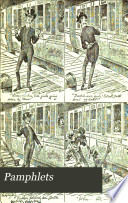 ... in the growth of plants according to the known abundance or scarcity of humus in the soil, seemed to afford incontestable proof of its correctness. Yet, this position, when submitted to a strict examination, is found to be untenable, and it becomes... ... in the growth of plants according to the known abundance or scarcity of humus in the soil, seemed to afford incontestable proof of its correctness. Yet, this position, when submitted to a strict examination, is found to be untenable, and it becomes...  British Farmer's Magazine - Page 711849Full view British Farmer's Magazine - Page 711849Full view - About this book
 | 1843 - 800 pages
...be untenable ; and it becomes evident, from most conclusive proofs, that humus, in the form in'which it exists in the soil, does not yield the smallest nourishment to plants/' Dr. Liebig enters into a lengthened argument in corroboration of this point, in which he shows that... | |
 | Robert Rigg - 1844 - 292 pages
...quantities to furnish them with the carbon they require during their growth. Hence he deduces that "humus in the form in which it exists in the soil does not yield the smallest nourishment to plants; the carbon must therefore be drawn from some other source ;" and since animal and vegetable matter... | |
 | 1845 - 758 pages
...soils. It appears, however, from the masterly researches of Liebig and others, that the so-called humus, in the form in which it exists in the soil, does not yield the smallest nourishment to plants; that it only accelerates their growth, in so far as it serves as a medium of fixing the inorganic elements... | |
 | Richard Dennis Hoblyn - 1846 - 144 pages
...where its carbon is abstracted. Yet Liebig adduces the following most conclusive proofs that humus, in the form in which it exists in the soil, does not yield the smallest nourishment to plants. J . The humus or humic acid of chemists, although soluble when newly precipitated, becomes completely... | |
 | 1849 - 604 pages
...humus. Liebig thinks it " untenable ; and it becomes evident, from most conclusive proofs, that humus in the form in which it exists in the soil, does not...air. During the decay of vegetable matter, carbonic acid and ammonia are evolved, and upon the completion of the process, and the entire dissolution and... | |
 | 1885 - 668 pages
...examination, is found to be untenable, and it becomes evident from most conclusive proofs that kutmis in the form in which it exists in the soil, does not yield the smallest nourishment to plants. The adherence to the above incorrect opinion has hitherto rendered it impossible for the true theory... | |
 | William Blackwood - 1842 - 606 pages
...page, the following sentence: — " It becomes evident, from the most conclusive proofs, that humus, in the form in which it exists in the soil, does not yield the smallest nourishment to plants." Let us, therefore, examine these " most conclusive proofs." They may be briefly stated under the following... | |
 | 1840 - 794 pages
...examination, is found to be untenable, and it becomes evident, from most conclusive proofs, that humus, in the form in which it exists in the soil, does not yield the smallest nourishment to plants." This view he substantiates by a reference to the facts, that the hutn ic add of chemi sts, the humus... | |
 | 1841 - 872 pages
...examination, is found to be untenable, and it becomes evident, from the most conclusive proofs, that humus, in the form in which it exists in the soil, does not yield the smallest nourishment to plants." "The names given to these substances might lead to the supposition that their composition is identical.... | |
 | Jared Sparks, Edward Everett, James Russell Lowell, Henry Cabot Lodge - 1841 - 578 pages
...when admitted to a strict examination, is found to be untenable ; and it becomes evident that humus in the form in which it exists in the soil does not yield the smallest nourishrpept to plants." — p. 61. VOL. LIII. — NO. 112. 20 He attempts to prove his position, that... | |
| |